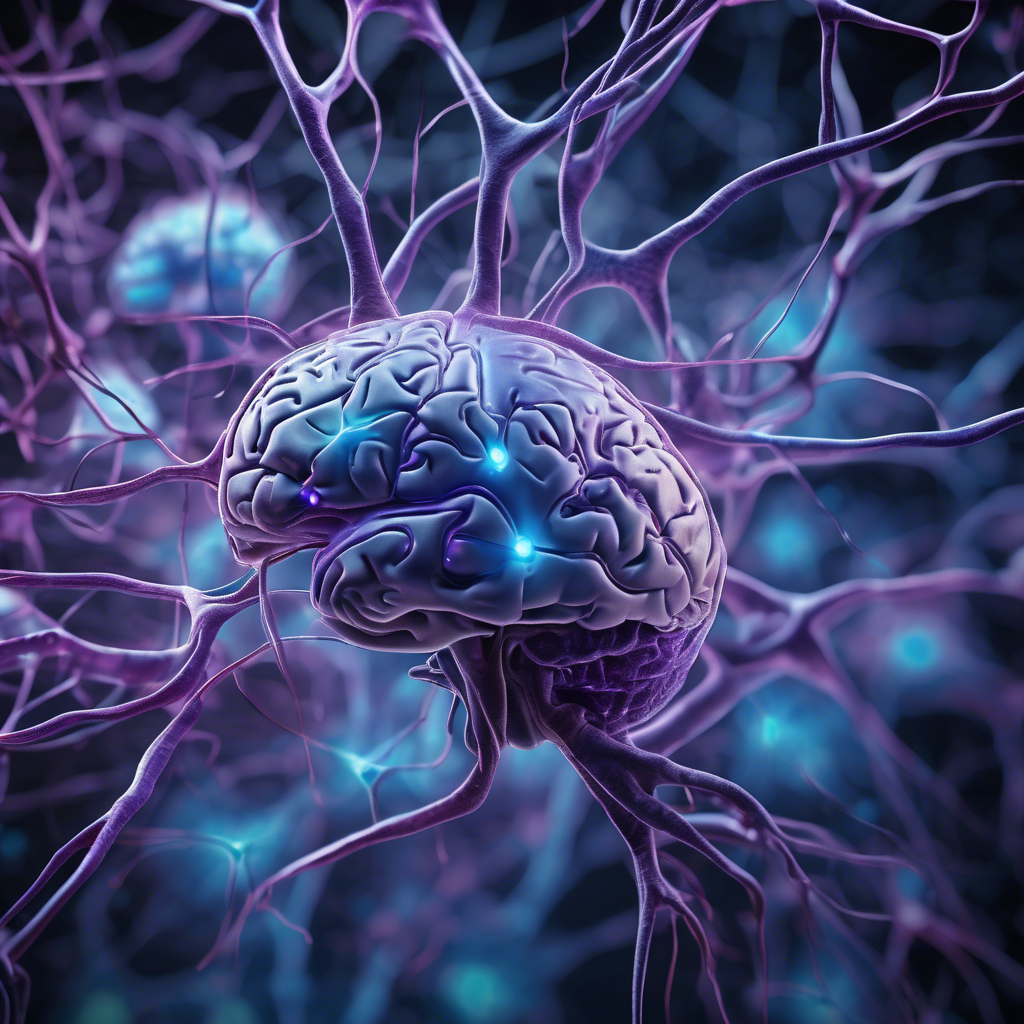AI Uncovers New Alzheimer's Disease Mechanism and Potential Therapeutic Target

Artificial intelligence (AI) is a broad field that includes many different subtypes, ranging from apps capable of writing poetry to algorithms that detect patterns easily missed by humans. Recently, AI modeling has played a significant role in advancing an Alzheimer's disease study. Researchers at the University of California, San Diego (UC San Diego) utilized AI to uncover that a gene commonly identified as a marker of Alzheimer's might also be a causative factor. This discovery underscores a major challenge in Alzheimer's research: distinguishing the changes caused by the disease from the changes that actually trigger it. The focus of this study was an enzyme called phosphoglycerate dehydrogenase (PHGDH) and the gene encoding it. Prior research by the team had shown that this gene tends to be more active in individuals with rapidly progressing Alzheimer's. However, what was unclear was the mechanism behind this connection. Using AI, the researchers modeled the three-dimensional structure of the PHGDH enzyme in greater detail, revealing a previously unknown function: it appears to switch other specific genes on and off. Further investigations demonstrated that PHGDH interacts with two genes inside astrocytes—brain cells involved in supporting neurons—in ways that disrupt the brain’s capacity to manage inflammation and clear waste. The researchers believe this interaction may represent a critical tipping point that initiates Alzheimer's, explaining the link between PHGDH and the disease. “This discovery really required state-of-the-art AI to precisely determine the enzyme’s 3D structure, ” notes Sheng Zhong, a bioengineer at UC San Diego. Subsequently, the team sought to develop methods to partially inhibit PHGDH.
Ideally, a drug would block PHGDH’s gene-regulating activity in astrocytes, while preserving its essential enzymatic functions. They identified a molecule named NCT-503 that meets these criteria. AI modeling was again employed to analyze the structure of NCT-503 and its interaction with PHGDH. It appears that NCT-503 binds to a specific pocket in PHGDH, preventing its unauthorized gene-switching actions. Although it will take substantial time before a drug for Alzheimer's can be developed based on this finding, initial research has shown that treatments derived from NCT-503 can effectively regulate PHGDH activity in mouse models of the disease. Mice treated with the molecule demonstrated improved performance in memory and anxiety-related tests. “Now there is a therapeutic candidate with demonstrated efficacy that holds promise for further clinical development, ” says Zhong. “There could be entirely new classes of small molecules that can be harnessed for future therapeutics. ” Importantly, NCT-503 is capable of crossing the blood-brain barrier to reach neurons and their associated cells, enhancing the potential impact of this research. Drugs based on NCT-503 could also be administered orally. While unraveling the complexity of Alzheimer’s disease—including the various contributing factors from environmental challenges to inherited genetics—remains a slow process, each new study brings us closer to effective treatments and better management of the condition. “Unfortunately, treatment options for Alzheimer’s disease remain very limited, ” Zhong reflects. “At present, treatment responses are far from optimal. ”
Brief news summary
Artificial intelligence (AI) has significantly advanced Alzheimer’s research by revealing the role of the enzyme phosphoglycerate dehydrogenase (PHGDH) in disease progression. UC San Diego researchers used AI modeling to discover that PHGDH influences gene expression in astrocytes, brain cells crucial for controlling inflammation and waste removal. Disruptions in this regulation may trigger Alzheimer’s onset. They identified NCT-503, a molecule that selectively inhibits the harmful gene-regulating function of PHGDH while preserving its essential enzymatic activity. AI simulations showed that NCT-503 binds to a specific PHGDH site, blocking detrimental effects. In mouse models, NCT-503 improved memory and reduced anxiety, demonstrating therapeutic potential. Notably, NCT-503 is orally bioavailable and crosses the blood-brain barrier. This study highlights AI’s critical role in drug discovery and offers hope for more effective Alzheimer’s treatments beyond current options.
AI-powered Lead Generation in Social Media
and Search Engines
Let AI take control and automatically generate leads for you!

I'm your Content Manager, ready to handle your first test assignment
Learn how AI can help your business.
Let’s talk!

Filmmaker David Goyer Bets on Blockchain for Next…
TORONTO — David Goyer, the filmmaker known for works such as the Blade trilogy, The Dark Knight, and Apple TV’s Foundation series, announced on Friday that he is developing a new blockchain-based science-fiction universe named Emergence.

Republicans seek new oversight of online speech w…
Republican lawmakers recently introduced legislation aimed at increasing federal control over certain tech platforms while easing government oversight on artificial intelligence (AI).

JPMorgan Chase Settles First Transaction on Publi…
The largest bank in the United States is broadening its involvement with digital assets by reportedly settling blockchain transactions beyond its own proprietary networks.

State Attorneys General Oppose Federal AI Regulat…
A proposed 10-year federal ban that would prohibit states from regulating artificial intelligence (AI) has faced strong opposition from a wide coalition of state attorneys general.

DMG Blockchain Solutions Inc. Announces Second Qu…
VANCOUVER, British Columbia, May 16, 2025 (GLOBE NEWSWIRE) — DMG Blockchain Solutions Inc.

US crypto group Coinbase targeted by hackers
On May 15, 2025, Coinbase, a leading U.S. cryptocurrency exchange, revealed it had been targeted by a sophisticated cyberattack.

'Fortnite' Players Are Already Making AI Darth Va…
On Friday, Epic Games announced the return of Darth Vader to Fortnite as an in-game boss, this time featuring conversational AI allowing players to chat with him.

 Auto-Filling SEO Website as a Gift
Auto-Filling SEO Website as a Gift








 Auto-Filling SEO Website as a Gift
Auto-Filling SEO Website as a Gift

